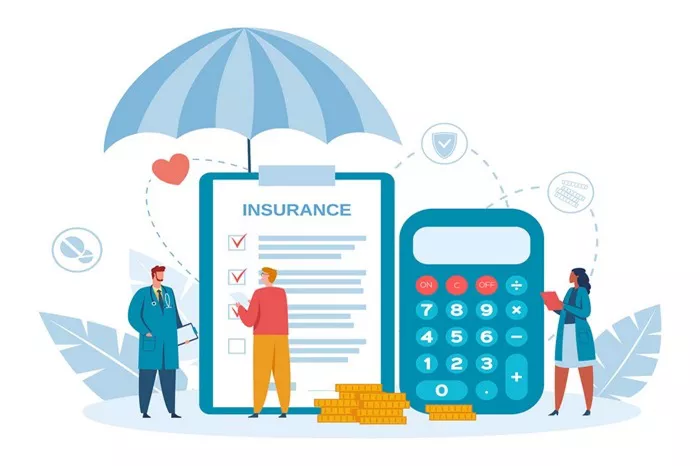If you stop paying for your car insurance, several consequences may arise, each with potential long-term implications for your financial well-being and driving privileges. From a professional perspective, understanding these outcomes is crucial to making informed decisions about your insurance coverage. Here’s an in-depth analysis of what happens when you cease making payments on your car insurance, structured into several key points:
Policy Cancellation
Immediate Termination
When you stop paying your car insurance premiums, the most immediate consequence is the cancellation of your policy. Most insurance companies have a grace period, typically around 30 days, during which you can make a late payment without penalty. However, if you fail to make the payment within this window, your policy will be terminated.
Notice of Cancellation
Before canceling your policy, the insurance company is required to send you a notice of cancellation. This notice usually outlines the reasons for the cancellation, the effective date of the termination, and any potential rights you may have to reinstate the policy.
Loss of Coverage
Comprehensive and Collision Coverage
Once your policy is canceled, you lose all comprehensive and collision coverage, which protects your vehicle against damage from accidents, theft, natural disasters, and other events. This means that if your car is damaged or stolen during this period, you will have to bear the cost of repairs or replacement yourself.
Liability Coverage
More importantly, you also lose liability coverage, which is mandatory in most states. Liability insurance covers damages to others’ property and injuries to others that you may cause in an accident. Without this coverage, you could be personally liable for significant financial losses if you are involved in a crash.
Financial Penalties
Non-Payment Fees
Depending on the terms of your policy and the insurance company’s policies, you may be charged non-payment fees or late fees for failing to make timely payments. These fees can add up quickly, increasing the overall amount you owe.
Impact on Credit Score
If you have a payment plan or financing agreement with the insurance company, stopping payments may also affect your credit score. Late payments or defaults on insurance premiums can be reported to credit bureaus, damaging your credit history and making it harder to obtain loans or credit in the future.
Legal Consequences
Violation of State Laws
Driving without insurance is illegal in most states. If you are caught driving uninsured, you may face fines, penalties, and even the suspension of your driver’s license. The penalties for driving uninsured can vary widely by state, but they typically include significant fines and potential jail time in severe cases.
SR-22 Requirement
If you have had your insurance canceled due to non-payment and are caught driving without insurance, your state may require you to file an SR-22 form with the Department of Motor Vehicles (DMV). An SR-22 is a certificate of financial responsibility that proves you have the minimum required insurance coverage. You may need to maintain this coverage for a specific period, such as three years, and any lapse in coverage could result in the suspension of your license.
Impact on Future Insurance Rates
Higher Premiums
Once your policy is canceled, you may find it difficult to obtain insurance at affordable rates in the future. Insurance companies often view a history of non-payment as a red flag, indicating a higher risk of future defaults. This can lead to higher premiums or even denial of coverage.
Non-Standard Insurance Markets
If you are unable to obtain insurance in the standard market due to a canceled policy, you may have to resort to non-standard or high-risk insurance markets. These markets often charge significantly higher premiums and may offer limited coverage options.
Reinstatement Process
Requirements for Reinstatement
If you wish to reinstate your policy after it has been canceled, you will typically need to meet specific requirements set by the insurance company. These may include paying the past-due premiums, plus any fees or penalties, and providing proof of financial stability or a new payment plan.
Waiting Periods
Some insurance companies may require a waiting period before allowing you to reinstate your policy. This waiting period can vary but can be as long as 90 days or more. During this time, you will need to find alternative insurance coverage or risk driving uninsured.
Long-Term Implications
Difficulty in Obtaining Coverage
A history of non-payment can follow you for years, making it difficult to obtain insurance coverage even after you have resolved the issue. Some insurance companies may refuse to cover you, or they may offer only limited coverage at high rates.
Impact on Personal Finances
The financial implications of driving uninsured can be severe. If you cause an accident and do not have insurance, you will be responsible for all damages and medical bills. This could lead to financial ruin, including bankruptcy, if the costs are significant.
Conclusion
Stopping payments on your car insurance can lead to a cascade of negative consequences, including policy cancellation, loss of coverage, financial penalties, legal issues, higher future insurance rates, and difficulty in obtaining coverage. It is essential to understand these implications before making the decision to stop paying your premiums. If you are facing financial difficulties, consider alternative options such as seeking a payment plan, reducing your coverage limits, or shopping around for more affordable insurance rates. Always prioritize maintaining insurance coverage to protect yourself, your vehicle, and your financial well-being.
Related Topics:



















